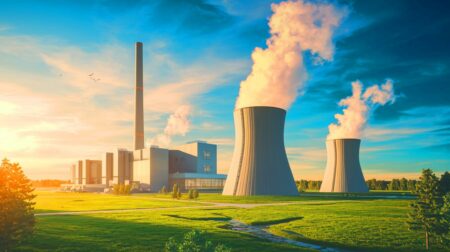Germany is planning to shutter all its coal-fired plants by 2038 at the latest, yet the way the country is going about that plan does not please everyone.
A group of 100 environmentalists and scientists in neighboring Poland are taking issue with the German government’s decision to shut down all the country’s nuclear power plants as part of its Energiewende, or energy transition.
They have called on Germany’s government to “reconsider your decision to end the use of nuclear power in Germany or to delay it until you have completely phased out the use of fossil fuels in the power industry and implemented effective, state-of-the-art technologies for the storage of power generated by renewables.”
A decade ago Germany still obtained a quarter of its electricity from 17 nuclear reactors operating in the country, yet following the nuclear accident in Fukushima, Japan, Chancellor Angela Merkel decided to phase out all of Germany’s existing nuclear plants.
However, a nuclear phase-out executed more than a decade ahead of a planned phase-out of coal in power generation does not bode well for Germany’s carbon reduction plans, the Polish experts argue.
“A]bandoning low-carbon nuclear power before the complete end of burning of hard coal and lignite will result in technical and technological problems which will be very difficult to overcome in a short time period and will require the continued use of other fossil fuels, mainly natural gas,” they write in an open letter. “This in turn fails to provide expected rapid and effective decarbonization.”
Nor is it only Germany that should retain or even boost its nuclear capacity, along with an ongoing growth in renewables, if the European Union is to meet its carbon reduction targets, says Massimo Garribba, director of Nuclear Energy, Safety and ITER at the European Commission’s Directorate-General for Energy.

“Between now and 2050, we expect an investment into nuclear power of around 80 gigawatt [in Europe],” Garribba explained recently at a conference on nuclear energy held in Helsinki, Finland. “The 126 nuclear power plants in the EU also have an important long-term role to play according to [our] strategy,” he added.
The way forward for EU nations would be to retain their current nuclear capacity and expand it with advanced small modular reactors (SMRs), which are safer and more versatile than earlier generations of nuclear reactors.
“Because of the expected large presence of renewables in the grid by 2050, flexibility is a key element,” Garribba explained. “The development of small modular reactors (SMRs) – with the flexibility they can bring to the grid and their various different applications – is an important step.”
Europe, the expert added, needs to retain its technological edge in energy. “We need to ensure that Europe remains a technological leader, and I am afraid that in this field we are lagging behind,” he said.
“Licensing procedures are complicated, and therefore standardization is a key factor for the success of SMRs. We cannot imagine having small reactors that need to be completely relicensed and adapted to the standards of every new country in which they are built,” Garribba said.
“This is why the commission has been looking at this issue and speaking to regulators, and we are considering putting together a project which looks into the safety aspects of SMRs. Different people envision using SMRs in different ways,” the Italian expert went on. “In countries like Canada they are considering using them in remote areas, and I wonder if similar opportunities could present themselves in northern Europe.”
Did you like it? 4.6/5 (20)








